- Home
- Heather Graham
Let the Dead Sleep Page 2
Let the Dead Sleep Read online
Page 2
There was no doubt that the man’s daughter had been devastated. And there was no doubt that she was old Angus’s daughter—she had his startling dark blue eyes and sculpted features, finer and slimmer, but still a face that spoke of her parentage. Her hair was a rich auburn, brushing her shoulders, a color that might well have been Angus’s once—when he’d had pigment in his hair. Despite her grief, she hadn’t seemed fragile or broken, which gave him hope. Though she was slim, she was a good five-nine and might just possess some of the old man’s inner strength.
As she walked to the front of the shop, she was frowning slightly, obviously perplexed by the commotion. She wore jeans and a short-sleeved tailored shirt and somehow appeared casual and yet naturally elegant. She moved with an innate grace.
Gladys heard her coming and turned to her. “You—you’re the owner?”
“Yes, I’m Danni Cafferty. May I help you?”
“Oh, yes, you certainly may. I know your father was intrigued by historic objects. I never met him but I read that his shop acquired the most unusual and...historic objects,” she repeated. “You must come and take the bust.”
“Mrs. Simon, we don’t just take anything.”
“It’s priceless! You must take it.”
“Mrs. Simon, I didn’t say we wouldn’t buy it. It’s that we don’t take things.” Danni looked at the woman, assessing her with a smile. “I can’t believe this is such an emergency that—”
“The bust killed my husband!” Gladys Simon broke in.
Danni raised perfectly arched brows. “Do you mean that...that it was used to strike him? If that’s the case, the bust might well be evidence—”
“No!” Mrs. Simon cried. “You are not your father!”
Danni seemed to freeze, calling on reserves of hard-fought control and dignity. “No, Mrs. Simon, I am not my father. But if you wish to bring this bust in—”
“No! I won’t touch it. You must come and get it.”
Danni mulled that over for a minute, as if she was still fighting for control. Quinn noted that Gladys Simon’s shrill voice had alerted Jane, and the bookkeeper was coming hesitantly down the stairs, one of Angus Cafferty’s ebony nineteenth-century gentleman’s canes in her hands. A good match for Billie—although the two weren’t romantically linked—Jane was slim and straight with iron-gray hair knotted at her nape and gold-rimmed spectacles. She’d been with Angus for the past two years or so, and though she hadn’t been a confidant in the way Billie had, she was fiercely loyal to the Cafferty family.
Jane was ready for whatever danger threatened, but seeing Gladys, her slim frame and near-hysteria, she held her place on the stairs, watching Danni to see if she was needed.
“Mrs. Simon, I’m sorry,” Danni said. “You’re suffering from terrible grief, and I have a lot of empathy for you. But we’re not equipped to handle the psychological stages of that pain. We’re a curio and collectibles shop and—”
“Yes! You must take the bust.”
Danni glanced at Billie, who was following the conversation with unabashed interest.
“Mrs. Simon,” she said gently. “Is there someone we can call? A close friend, a relative? Perhaps a minister or a priest?”
“I need you to take the statue!” Mrs. Simon said. Then she raged at Danni. “Oh, you stupid, stupid girl!”
Danni stiffened at the insult but, to her credit, took a deep breath and refused to reply, shaking her head with sorrow instead. “Let us help you. Let us get you someone who can help you.”
Gladys whirled around, starting for the door.
“Mrs. Simon, if it’s so awful, why didn’t you just get rid of it?” Danni demanded.
Gladys stopped abruptly. She slowly turned around and walked toward her. “Don’t you think I tried? I threw it in the trash, and it was back in the study the next day. I dropped it in a Dumpster on Bourbon Street, and it was back the next day. I buried it—and it was back!”
She was delusional—or so she obviously appeared to Danielle Cafferty.
“Mrs. Simon, really, you need to calm down,” Danni said. “We’ll go over and see the statue. Give me an address and we’ll come this evening. We close at seven.”
A sigh of sheer relief escaped Gladys and she dug into her handbag for a card, which she handed to Danni. “Thank you...thank you. You’ve saved my life!”
“It’s just a bust...a statue...whatever, Mrs. Simon. Please relax. Everything will be fine.”
“Thank you, thank you, thank you!” Gladys breathed.
And then she was gone.
Danni picked up the store’s old-fashioned phone. She started dialing as Jane came the rest of the way down the stairs.
“You all right, Danni?” Jane didn’t hide her concern.
“Of course. But I’m worried about that poor woman.”
“Who are you calling?” Billie asked.
“The police,” Danni said. “Someone needs to help that woman—perhaps see that she’s committed. She’s—”
It was time for Quinn to make his move and he did so swiftly, setting his thumb down on the disconnect button before she could dial three digits.
Danni stared at him in total indignation. “What the hell? Who are you—what do you think you’re doing?”
“Don’t call the police just yet. Listen to me. The woman really needs your help. Ask Billie,” Quinn said. “I can try to follow her and get the damned thing, but I’ve already tried to see her and talk to her. She knows about your father and the shop, so you’re the one she needs to trust. You need to go and get the statue. But you don’t have to deal with this alone. I’ll be there.”
Taken aback, she was still angry, but he saw sudden recognition in her smoldering gaze, along with shock and resentment.
Maybe he wasn’t handling this well.
“You...you were at my father’s funeral,” she said.
He nodded. “I was his friend. He was a good man. The best. And you’re doing him a real disservice if you don’t continue his work.”
“His work? His work was this shop and I’m keeping it open. Listen, I’m calling the police. That woman needs professional help—and I don’t believe you’re any more equipped to deal with her than I am,” she said.
“Billie?” Quinn turned to Angus’s long-time assistant.
Billie cleared his throat, looking at Danni. “Um, yeah, I don’t know how to explain it all, but your father would’ve gone out there and seen the statue.”
“Who is he?” she asked Billie, inclining her head toward Quinn.
“He is standing right here. I’m Quinn. Michael Quinn, private investigator.”
“And you’re investigating crazy ladies with statues?” she asked sarcastically.
“You should go see the bust, Danni,” Billie said.
“What’s the matter with both of you? If I don’t call the police, I’ll live with a guilty conscience forever. She’s deranged! She could be a danger to herself and others.”
Quinn stepped back. “By all means, then. Call the police. And maybe they can help her for a few hours—a few days. The danger will continue. I guarantee it.”
“Really? And you’re so sure of this...how?”
“Because I worked with your father on occasion.”
Her eyes narrowed. “I don’t know you,” she told him.
“Um, I do,” Billie said. “I know him.”
“I’ve seen him with your father, too,” Jane murmured. “But I don’t think you should trust him.”
“She should trust him. Yes, she should!” Billie argued. “No offense, Jane, but you were never part of Angus’s real world. You’ve barely been around two years and you’re his bookkeeper, nothing more.”
“Well, I never!” Jane said.
“Jane is a wonderful empl
oyee and you will not stand here in my store and insult her!” Danni said indignantly.
“Angus trusted me implicitly,” Jane declared.
“Perhaps,” Quinn said with a shrug. “But that’s not important right now.”
Danni looked at him warily. “You should state your business, your relationship with my father and then leave the store.”
“I helped him. He helped me. I guess Angus wanted to protect you, his little princess,” Quinn said. “Well, it’s a shame and it’s sad and it’s probably too late.” He felt his anger growing, and he wasn’t sure why. It wasn’t really her fault if her father had chosen not to share the depths of his life with her.
But she should have figured out that he wasn’t just a shopkeeper or a collector! How naive could she have been? On the other hand, maybe she hadn’t been that naive. Maybe she’d just been gone too much.
“Like I said, I don’t know you, and I was very close to my father!” she began. “Mrs. Simon is suffering and needs help but understand this—I am not trained or equipped to deal with mental illness, and I rather think you might have some problems in that area yourself—rather than being a person who’s capable of dealing with it!”
“Call the police, then. Like I said, maybe they can at least buy her a few hours.” Although Quinn ignored her insult, he felt his fingers knotting into fists. He had to get out of the shop. There was no chance he’d offer unprovoked violence to anyone but he didn’t want to break anything there. He studied her for a moment and added, “If you come up with some sense, meet me at the Simon house at five. At five—I don’t care if you’ve closed or not. Billie handles the shop, anyway. He doesn’t need you here.”
With that, Quinn turned.
As the door closed behind him, he found himself shaking with emotion.
And some of it was anger.
Some of it was fear. Not for himself. He’d long since learned that fear, in itself, wasn’t a bad thing. But a man’s reaction to fear could be very bad indeed.
He was afraid for the future. He hadn’t realized how much he’d depended on Angus Cafferty.
* * *
Danni watched the stranger leave, puzzled and trembling inwardly with outrage, indignation, a painful sense of loss. And dread...
She’d been working until she’d heard Gladys Simon’s strident voice. Working idly on the finishing touches to a painting. She assumed she’d been inspired by a face she’d seen on the streets of New Orleans. Dignified, aging, attractive, intriguing. But her painting was almost an exact image of the woman who’d come into the shop.
It doesn’t mean anything, she assured herself. It was just a resemblance. There were many such women in the South. Old-school, well-groomed and usually ruled by impeccable manners and propriety.
But...
She turned her thoughts to the man who’d been in the shop—as if he’d followed Gladys in, as if he’d known why she was coming. Yes, she’d seen him at the funeral. He’d interested her. He hadn’t exactly been hiding, but he’d kept his distance from the family and other mourners. It would be difficult, she imagined, for a man like that to really blend into a crowd. He had to be six foot four, and he seemed to be solidly built but not too heavily muscled. He had neatly cropped sandy hair and hazel eyes that seemed to marble to a piercing shade of gold.
“Who is he?” she asked Billie.
And if he knew my father so well, she wondered silently, feeling a familiar sense of loss and pain, why did my father never tell me about him?
I was so blithely unaware! Completely focused on art...
Billie looked uncomfortable. “He told you. His name is Michael Quinn. He’s a P.I. Used to be a cop with the NOPD, but he left the force to work for himself.”
“So what?” she demanded. “He worked with my dad to track down stolen objects or something like that?” she asked.
“Something like that,” Billie said, his gaze sliding from hers.
“Hmmph! He’s rude,” Jane said, resting the cane she’d brought down on the bar counter. “Obnoxious. Like a crazy man. You should stay away from him!”
“No, you should listen to him,” Billie insisted.
Jane shook her head. “Report him to the police!”
“Ah, Jane. You’ll argue with anything I suggest,” Billie said, aggravated.
“Well, rude isn’t really the problem at the moment.” Danni sighed, looking at the two of them. They could bicker like a married couple; Billie didn’t really trust Jane, she thought. But both of them were excellent at their jobs, excellent at helping her run the business. She lowered her head. Most of the time, they were amusing when they were together.
“Billie, sorry. I can’t just take the word of some guy who thinks he knew my father better than I did. I am going to call the police. I’m worried about that woman.”
“Are you going to go and see about the bust?” Billie asked.
“Maybe,” she replied. “But...I need to report this. If something happened to her—if she was so upset she walked into traffic—I’d never be able to live with myself.”
Billie and Jane both stared at her. She called the operator rather than the emergency number and was put through to the right department. Billie and Jane watched as she gave the woman’s name and reported her strange behavior in the shop and then answered a zillion questions. Had the woman been armed? No. Had she threatened anyone? No. Had she mentioned suicide? No. But she had talked about a killer statue and sounded as if she needed some serious intervention.
In the end, a public safety officer promised that Mrs. Simon’s state of mind would be investigated, and she hung up, feeling frustrated.
Jane and Billie were still staring at her.
“What?” she asked.
“Your dad would’ve found out about the bust. He wouldn’t have ignored that poor lady,” Billie said.
“You haven’t been on any buying trips since he died,” Jane added. “No, I wasn’t your father’s right hand—like Billie—but I knew him well and loved him. Maybe...” She looked pained as she spoke again. “Maybe you should listen to Billie.”
“Will wonders never cease!” Billie muttered.
Danni lifted her hands in a gesture that said nothing at all. It was still hard; she didn’t spend her days crying or moping, but she felt as if there was a huge hole in her life. Angus had expected her to be strong and independent. She’d gone away to school and gotten her own apartment and led a life separate from his.
But he’d always been there. Once she was back in New Orleans, she’d seen him almost every day. She’d traveled with him extensively through the years.
Seeing the sights—at his urging—while he did his buying and collecting. He had spoiled her, yes. But he’d also taught her to be courteous and caring. He’d never walked away from anyone who needed help, whether it was a confused tourist seeking directions or a homeless veteran or down-and-outer needing food and shelter—or a ride to detox.
“I will go see the bust, okay? I’ll do what I can for Mrs. Simon.”
Billie nodded. “That’s what your dad would want.”
“I’m trying to keep his legacy alive,” she told the pair. “Now, if you’ll excuse me...I was working. I’ll go at five. I’ll meet that obnoxious man and buy the stupid bust and hopefully make everyone happy, all right?”
Neither spoke or moved.
With a slight sound of impatience, she passed them by, thinking she’d return to her studio.
But she didn’t want to go there. She didn’t want to see the painting she’d almost finished, the character study that suddenly looked just like a real person.
Mrs. Simon.
Instead, she headed downstairs to the rooms that had been the most precious to her father. There were glass cases here and there—and boxes everywhere. A full suit of ar
mor stood in one corner while in another an upright Victorian coffin held pride of place. It had never been used for a body but had been a display piece for a funeral home that had once been in business on Canal Street. A mannequin enjoyed eternal sleep behind the small window above the face, a style that was popular at the time. The wall displayed the death mask of an ancient Egyptian queen. One corner of the room held a horrifically screaming gorilla from a movie that was never completed and probably with good cause; the sign on the creature said From The Gorilla That Ate Manhattan.
She paused, glancing around. Other people, she thought, might find the basement creepy. She’d spent so much time working with her father that she’d learned to appreciate the delicate artistry put into so many of the items. The carving on the coffin, for instance, was the result of painstaking craft and labor.
Light filtered in from the old glass panes just above ground level but it wasn’t enough for her that afternoon. Danni turned on the low-watt bulbs that helped protect the old pieces of art and artistry and sighed wistfully. Some people might suggest that her father haunted the rooms where his collections were kept.
She wished he did.
“Oh, Dad, if only you were here now!” she said softly.
The book.
He’d been so frantic that she “turn to the book.”
It was a very old volume and it sat on a desk, encased in protective glass. Danni could remember it being there forever, she just hadn’t thought much about it among the other curios so dear to her father. She walked over to the desk, sat in the swivel chair and looked down at the old tome before opening the glass cover and lifting it out. She’d never held it before, and the book was heavy, the parchment rich and the pages gold-trimmed. It was American, something that always gave her father great pride, and had been printed in 1699.
Carefully she turned pages, wondering what he’d wanted her to read in this book—or why he’d believed it would answer all questions, solve all dilemmas.
She was startled when a piece of folded paper slipped out.
She recognized her father’s writing—her name in cursive on the outside.

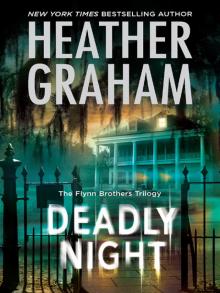 Deadly Night
Deadly Night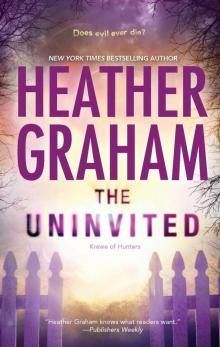 The Uninvited
The Uninvited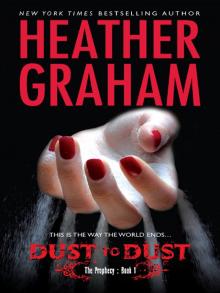 Dust to Dust
Dust to Dust Heart of Evil
Heart of Evil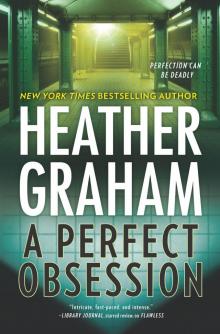 A Perfect Obsession
A Perfect Obsession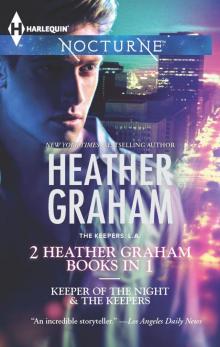 The Keepers
The Keepers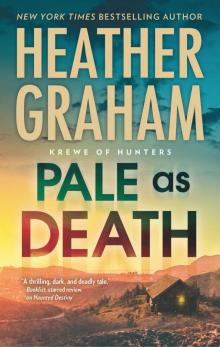 Pale as Death
Pale as Death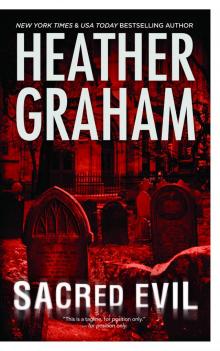 Phantom Evil
Phantom Evil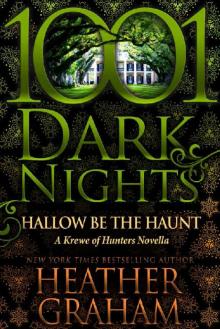 Hallow Be the Haunt
Hallow Be the Haunt Night of the Wolves
Night of the Wolves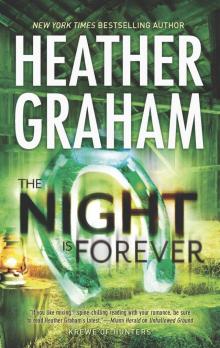 The Night Is Forever
The Night Is Forever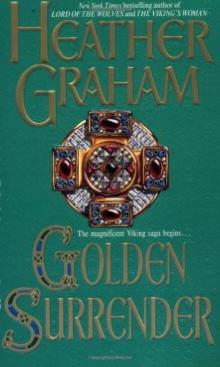 Golden Surrender
Golden Surrender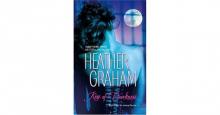 Kiss of Darkness
Kiss of Darkness Beneath a Blood Red Moon
Beneath a Blood Red Moon A Dangerous Game
A Dangerous Game Ghost Shadow
Ghost Shadow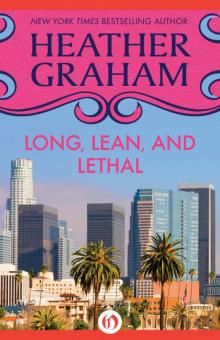 Long, Lean, and Lethal
Long, Lean, and Lethal Fade to Black
Fade to Black The Rising
The Rising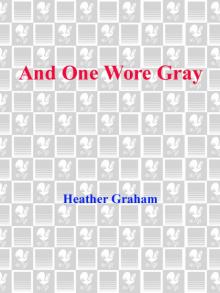 And One Wore Gray
And One Wore Gray Rebel
Rebel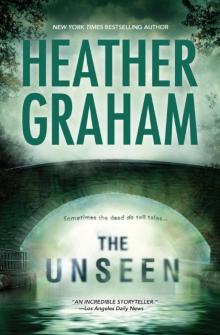 The Unseen
The Unseen The Night Is Watching
The Night Is Watching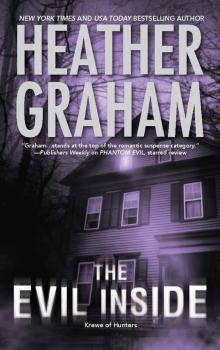 The Evil Inside
The Evil Inside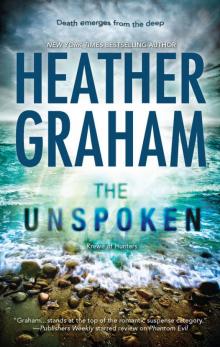 The Unspoken
The Unspoken The Night Is Alive
The Night Is Alive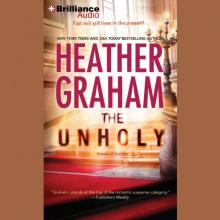 The Unholy
The Unholy Nightwalker
Nightwalker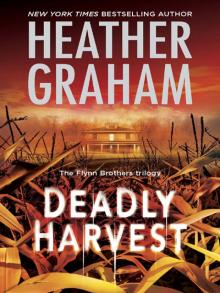 Deadly Harvest
Deadly Harvest An Angel for Christmas
An Angel for Christmas A Pirate's Pleasure
A Pirate's Pleasure American Drifter
American Drifter Realm of Shadows
Realm of Shadows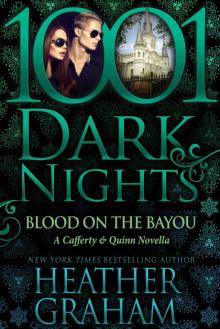 Blood on the Bayou
Blood on the Bayou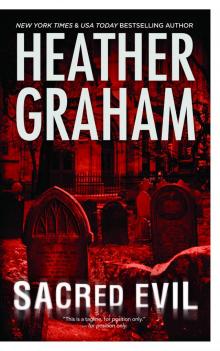 Sacred Evil
Sacred Evil Dying to Have Her
Dying to Have Her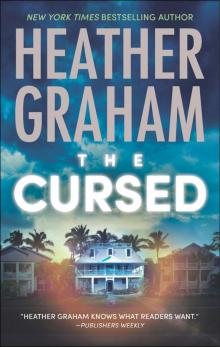 The Cursed
The Cursed Captive
Captive Hurricane Bay
Hurricane Bay Drop Dead Gorgeous
Drop Dead Gorgeous Ghost Memories
Ghost Memories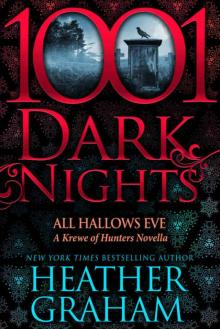 All Hallows Eve
All Hallows Eve Dying Breath
Dying Breath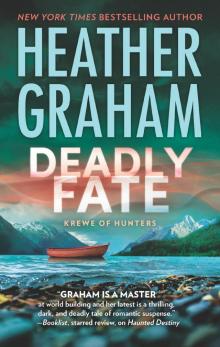 Deadly Fate
Deadly Fate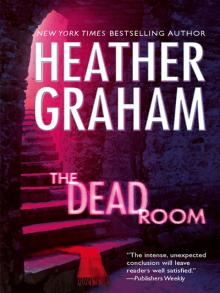 The Dead Room
The Dead Room Lord of the Wolves
Lord of the Wolves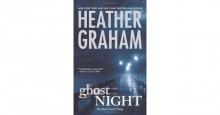 Ghost Night
Ghost Night Ghost Walk
Ghost Walk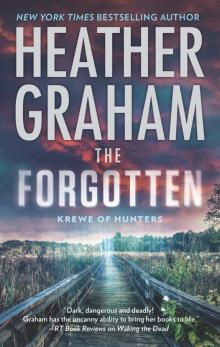 The Forgotten
The Forgotten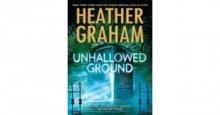 Unhallowed Ground
Unhallowed Ground One Wore Blue
One Wore Blue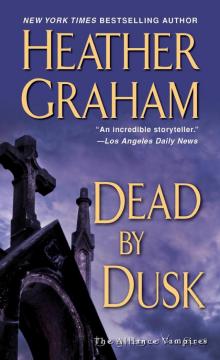 Dead By Dusk
Dead By Dusk Night of the Blackbird
Night of the Blackbird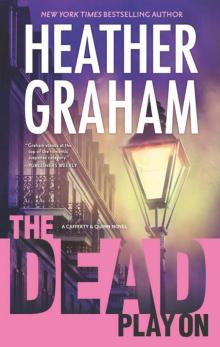 The Dead Play On
The Dead Play On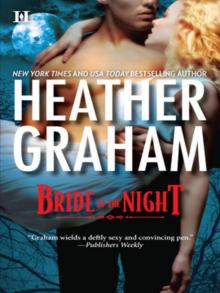 Bride of the Night
Bride of the Night Wicked Deeds
Wicked Deeds The Forbidden
The Forbidden Triumph
Triumph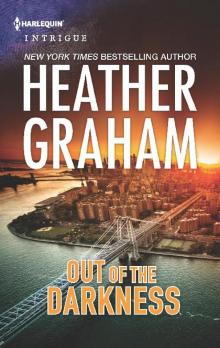 Out of the Darkness
Out of the Darkness Love Not a Rebel
Love Not a Rebel The Last Noel
The Last Noel Tall, Dark, and Deadly
Tall, Dark, and Deadly The Death Dealer
The Death Dealer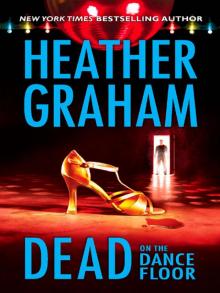 Dead on the Dance Floor
Dead on the Dance Floor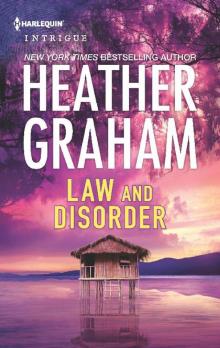 Law and Disorder
Law and Disorder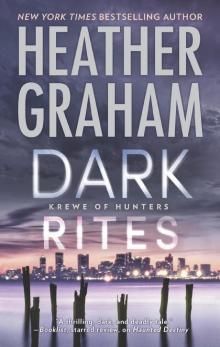 Dark Rites
Dark Rites New Year's Eve
New Year's Eve Hostage At Crystal Manor
Hostage At Crystal Manor And One Rode West
And One Rode West Home in Time for Christmas
Home in Time for Christmas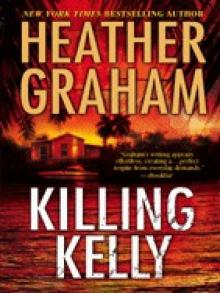 Killing Kelly
Killing Kelly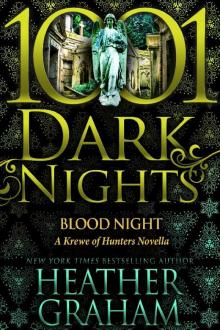 Blood Night
Blood Night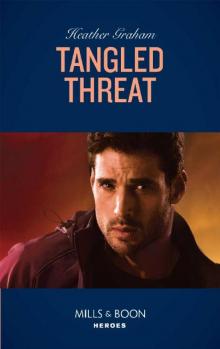 Tangled Threat (Mills & Boon Heroes)
Tangled Threat (Mills & Boon Heroes)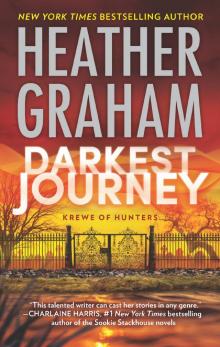 Darkest Journey
Darkest Journey Glory
Glory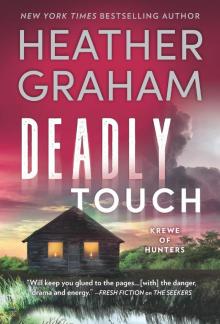 Deadly Touch
Deadly Touch An Unexpected Guest
An Unexpected Guest Night of the Vampires
Night of the Vampires Seize the Wind
Seize the Wind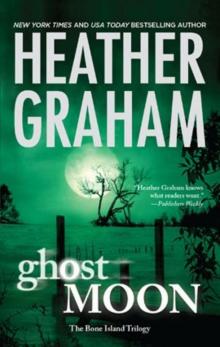 Ghost Moon
Ghost Moon The Vision
The Vision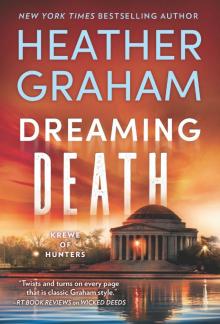 Dreaming Death
Dreaming Death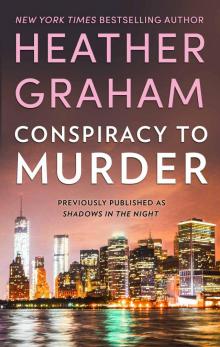 Conspiracy to Murder
Conspiracy to Murder Horror-Ween (Krewe of Hunters)
Horror-Ween (Krewe of Hunters)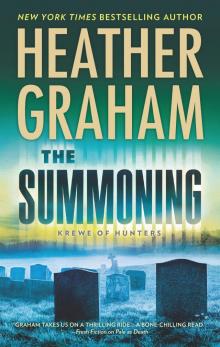 The Summoning
The Summoning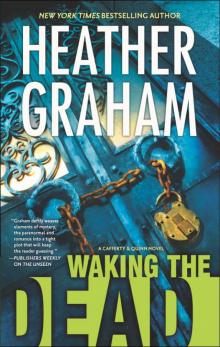 Waking the Dead
Waking the Dead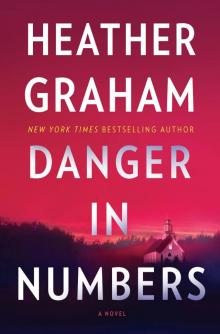 Danger in Numbers
Danger in Numbers The Hidden
The Hidden Sweet Savage Eden
Sweet Savage Eden Tangled Threat ; Suspicious
Tangled Threat ; Suspicious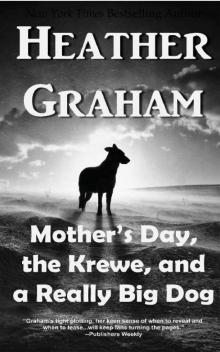 Mother's Day, the Krewe, and a Really Big Dog
Mother's Day, the Krewe, and a Really Big Dog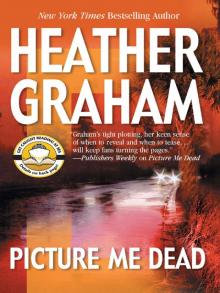 Picture Me Dead
Picture Me Dead The Killing Edge
The Killing Edge St. Patrick's Day
St. Patrick's Day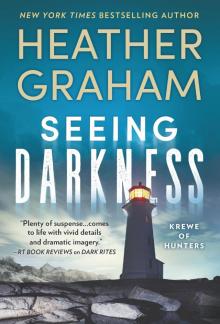 Seeing Darkness
Seeing Darkness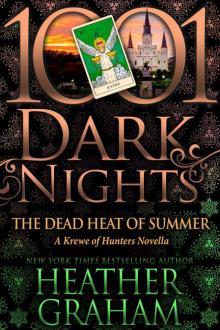 The Dead Heat of Summer: A Krewe of Hunters Novella
The Dead Heat of Summer: A Krewe of Hunters Novella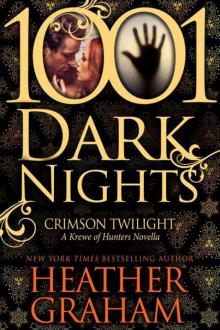 Crimson Twilight
Crimson Twilight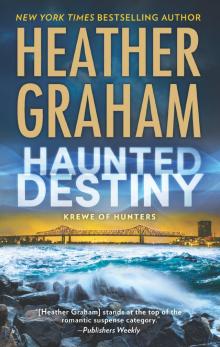 Haunted Destiny
Haunted Destiny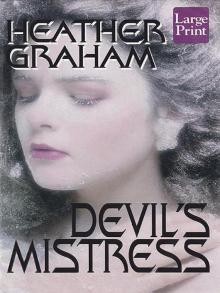 Devil's Mistress
Devil's Mistress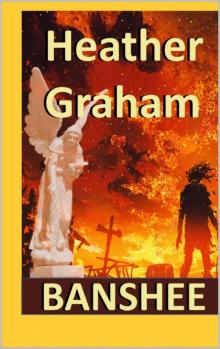 Banshee
Banshee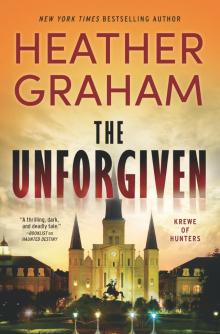 The Unforgiven
The Unforgiven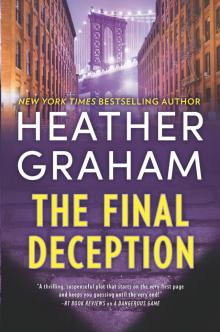 The Final Deception
The Final Deception A Horribly Haunted Halloween
A Horribly Haunted Halloween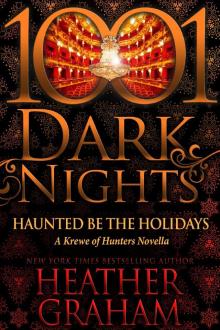 Haunted Be the Holidays
Haunted Be the Holidays Deadly Gift
Deadly Gift Easter, the Krewe and Another Large White Rabbit
Easter, the Krewe and Another Large White Rabbit Haunted
Haunted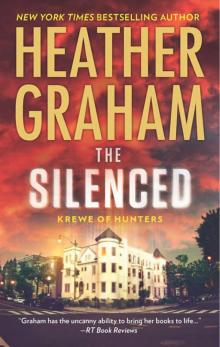 The Silenced
The Silenced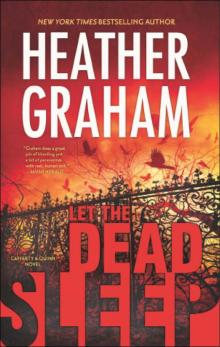 Let the Dead Sleep
Let the Dead Sleep Christmas, the Krewe, and Kenneth
Christmas, the Krewe, and Kenneth Big Easy Evil
Big Easy Evil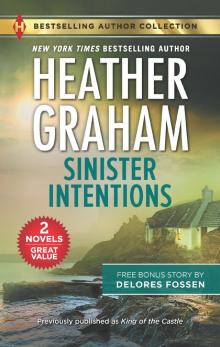 Sinister Intentions & Confiscated Conception
Sinister Intentions & Confiscated Conception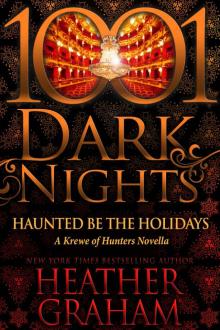 Haunted Be the Holidays: A Krewe of Hunters Novella
Haunted Be the Holidays: A Krewe of Hunters Novella Blood Red
Blood Red A Perilous Eden
A Perilous Eden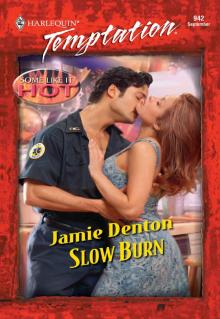 Slow Burn
Slow Burn Strangers In Paradise
Strangers In Paradise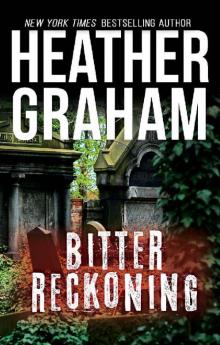 Bitter Reckoning
Bitter Reckoning Krewe of Hunters, Volume 1: Phantom Evil ; Heart of Evil ; Sacred Evil ; The Evil Inside
Krewe of Hunters, Volume 1: Phantom Evil ; Heart of Evil ; Sacred Evil ; The Evil Inside Do You Fear What I Fear?
Do You Fear What I Fear?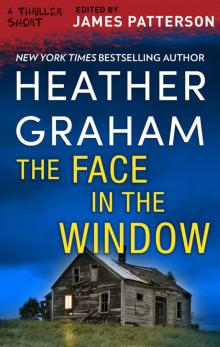 The Face in the Window
The Face in the Window Krewe of Hunters, Volume 3: The Night Is WatchingThe Night Is AliveThe Night Is Forever
Krewe of Hunters, Volume 3: The Night Is WatchingThe Night Is AliveThe Night Is Forever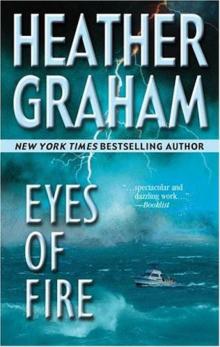 Eyes of Fire
Eyes of Fire Apache Summer sb-3
Apache Summer sb-3 Sensuous Angel
Sensuous Angel In the Dark
In the Dark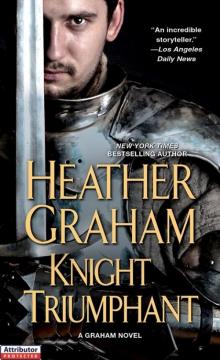 Knight Triumphant
Knight Triumphant Hours to Cherish
Hours to Cherish Tender Deception
Tender Deception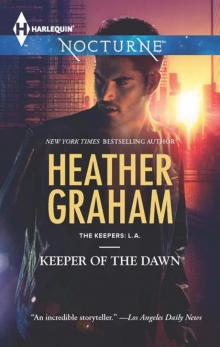 Keeper of the Dawn tkl-4
Keeper of the Dawn tkl-4 Apache Summer
Apache Summer Between Roc and a Hard Place
Between Roc and a Hard Place Echoes of Evil
Echoes of Evil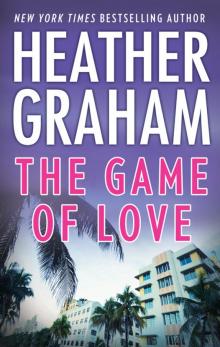 The Game of Love
The Game of Love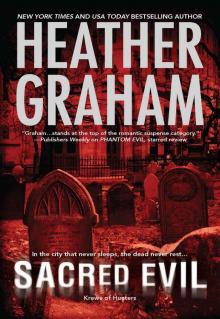 Sacred Evil (Krewe of Hunters)
Sacred Evil (Krewe of Hunters) Bougainvillea
Bougainvillea Tender Taming
Tender Taming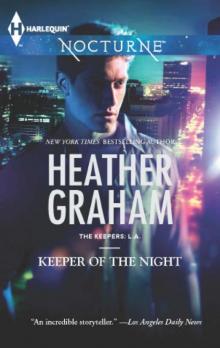 Keeper of the Night (The Keepers: L.A.)
Keeper of the Night (The Keepers: L.A.) Lonesome Rider and Wilde Imaginings
Lonesome Rider and Wilde Imaginings Lucia in Love
Lucia in Love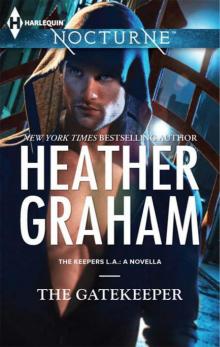 The Gatekeeper
The Gatekeeper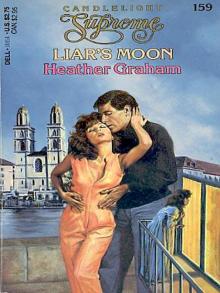 Liar's Moon
Liar's Moon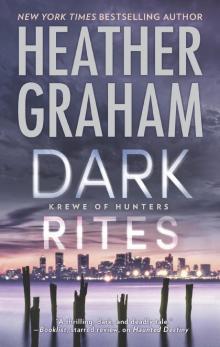 Dark Rites--A Paranormal Romance Novel
Dark Rites--A Paranormal Romance Novel A Season for Love
A Season for Love Krewe of Hunters, Volume 6: Haunted Destiny ; Deadly Fate ; Darkest Journey
Krewe of Hunters, Volume 6: Haunted Destiny ; Deadly Fate ; Darkest Journey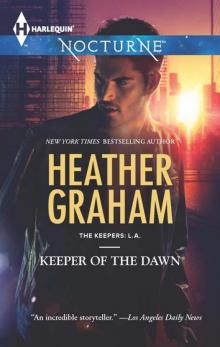 Keeper of the Dawn (The Keepers: L.A.)
Keeper of the Dawn (The Keepers: L.A.)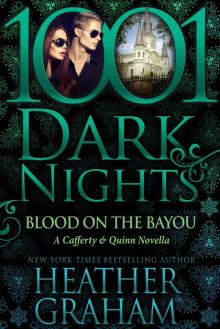 Blood on the Bayou: A Cafferty & Quinn Novella
Blood on the Bayou: A Cafferty & Quinn Novella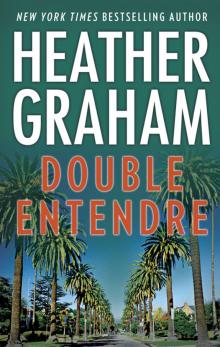 Double Entendre
Double Entendre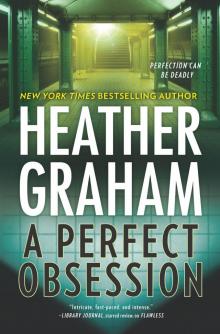 A Perfect Obsession--A Novel of Romantic Suspense
A Perfect Obsession--A Novel of Romantic Suspense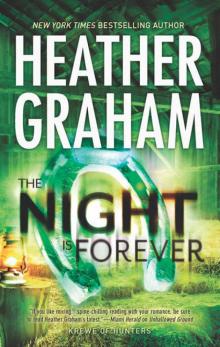 The Night Is Forever koh-11
The Night Is Forever koh-11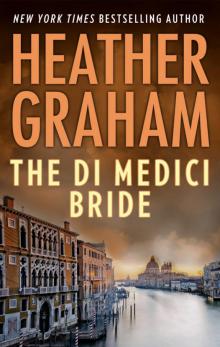 The Di Medici Bride
The Di Medici Bride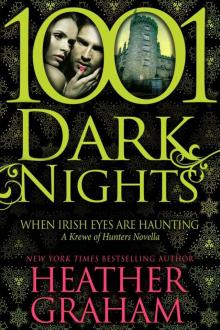 When Irish Eyes Are Haunting: A Krewe of Hunters Novella
When Irish Eyes Are Haunting: A Krewe of Hunters Novella The Keepers: Christmas in Salem: Do You Fear What I Fear?The Fright Before ChristmasUnholy NightStalking in a Winter Wonderland (Harlequin Nocturne)
The Keepers: Christmas in Salem: Do You Fear What I Fear?The Fright Before ChristmasUnholy NightStalking in a Winter Wonderland (Harlequin Nocturne)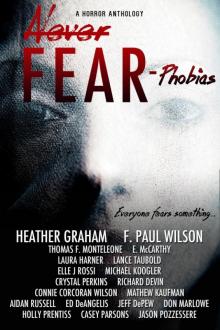 Never Fear
Never Fear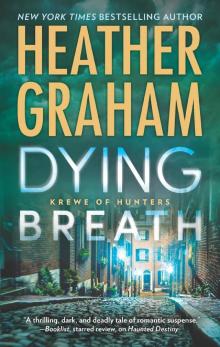 Dying Breath--A Heart-Stopping Novel of Paranormal Romantic Suspense
Dying Breath--A Heart-Stopping Novel of Paranormal Romantic Suspense If Looks Could Kill
If Looks Could Kill This Rough Magic
This Rough Magic Heather Graham's Christmas Treasures
Heather Graham's Christmas Treasures Hatfield and McCoy
Hatfield and McCoy The Trouble with Andrew
The Trouble with Andrew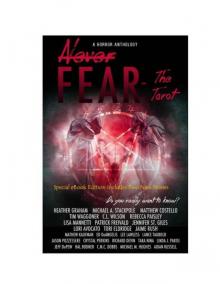 Never Fear - The Tarot: Do You Really Want To Know?
Never Fear - The Tarot: Do You Really Want To Know?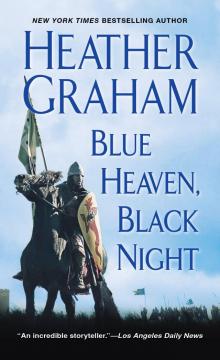 Blue Heaven, Black Night
Blue Heaven, Black Night Forbidden Fire
Forbidden Fire Come the Morning
Come the Morning Dark Stranger sb-4
Dark Stranger sb-4 Lie Down in Roses
Lie Down in Roses Red Midnight
Red Midnight Krewe of Hunters Series, Volume 5
Krewe of Hunters Series, Volume 5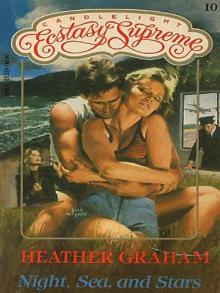 Night, Sea, And Stars
Night, Sea, And Stars Snowfire
Snowfire Quiet Walks the Tiger
Quiet Walks the Tiger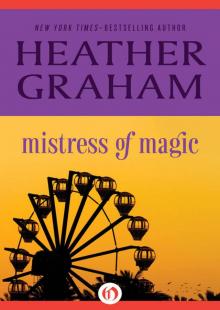 Mistress of Magic
Mistress of Magic For All of Her Life
For All of Her Life Runaway
Runaway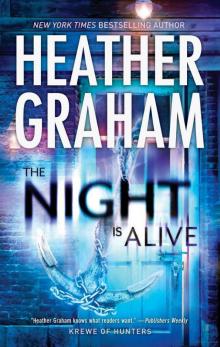 The Night Is Alive koh-10
The Night Is Alive koh-10 The Evil Inside (Krewe of Hunters)
The Evil Inside (Krewe of Hunters)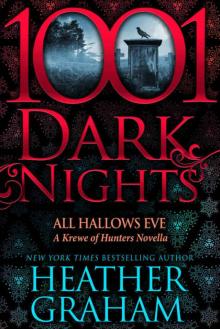 All Hallows Eve: A Krewe of Hunters Novella (1001 Dark Nights)
All Hallows Eve: A Krewe of Hunters Novella (1001 Dark Nights) Tomorrow the Glory
Tomorrow the Glory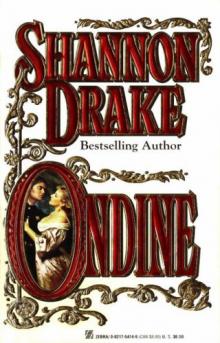 Ondine
Ondine Angel of Mercy & Standoff at Mustang Ridge
Angel of Mercy & Standoff at Mustang Ridge Bride of the Tiger
Bride of the Tiger When Next We Love
When Next We Love Heather Graham Krewe of Hunters Series, Volume 4
Heather Graham Krewe of Hunters Series, Volume 4 A Season of Miracles
A Season of Miracles Realm of Shadows (Vampire Alliance)
Realm of Shadows (Vampire Alliance)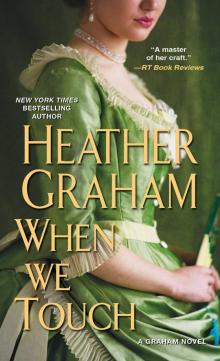 When We Touch
When We Touch Serena's Magic
Serena's Magic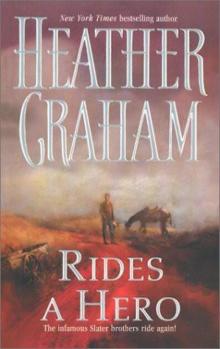 Rides a Hero sb-2
Rides a Hero sb-2 All in the Family
All in the Family Handful of Dreams
Handful of Dreams A Stranger in the Hamptons
A Stranger in the Hamptons Krewe of Hunters, Volume 2: The Unseen ; The Unholy ; The Unspoken ; The Uninvited
Krewe of Hunters, Volume 2: The Unseen ; The Unholy ; The Unspoken ; The Uninvited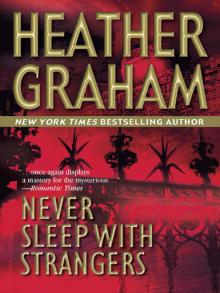 Never Sleep With Strangers
Never Sleep With Strangers Eden's Spell
Eden's Spell A Magical Christmas
A Magical Christmas Forever My Love
Forever My Love King of the Castle
King of the Castle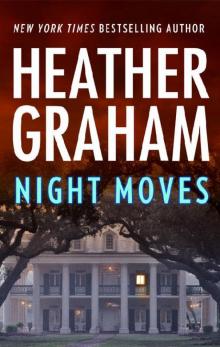 Night Moves (60th Anniversary)
Night Moves (60th Anniversary) The Island
The Island Borrowed Angel
Borrowed Angel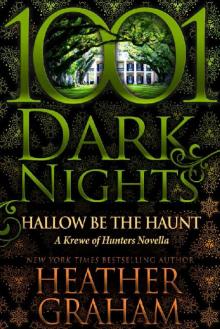 Hallow Be the Haunt: A Krewe of Hunters Novella
Hallow Be the Haunt: A Krewe of Hunters Novella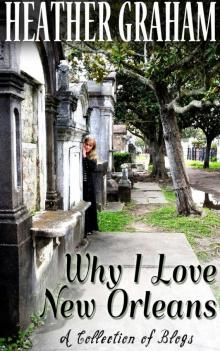 Why I Love New Orleans
Why I Love New Orleans The Last Cavalier
The Last Cavalier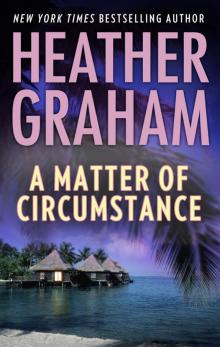 A Matter of Circumstance
A Matter of Circumstance Heather Graham's Haunted Treasures
Heather Graham's Haunted Treasures Tempestuous Eden
Tempestuous Eden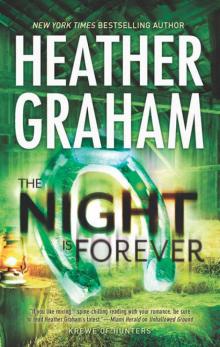 Krewe 11 - The Night Is Forever
Krewe 11 - The Night Is Forever